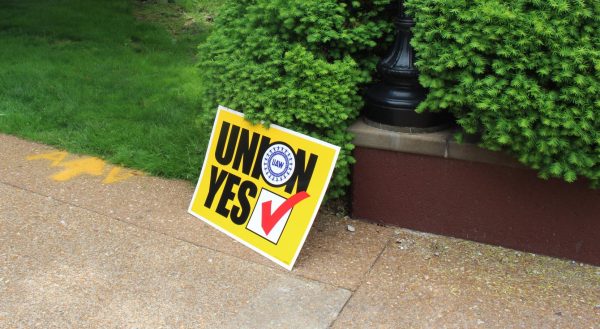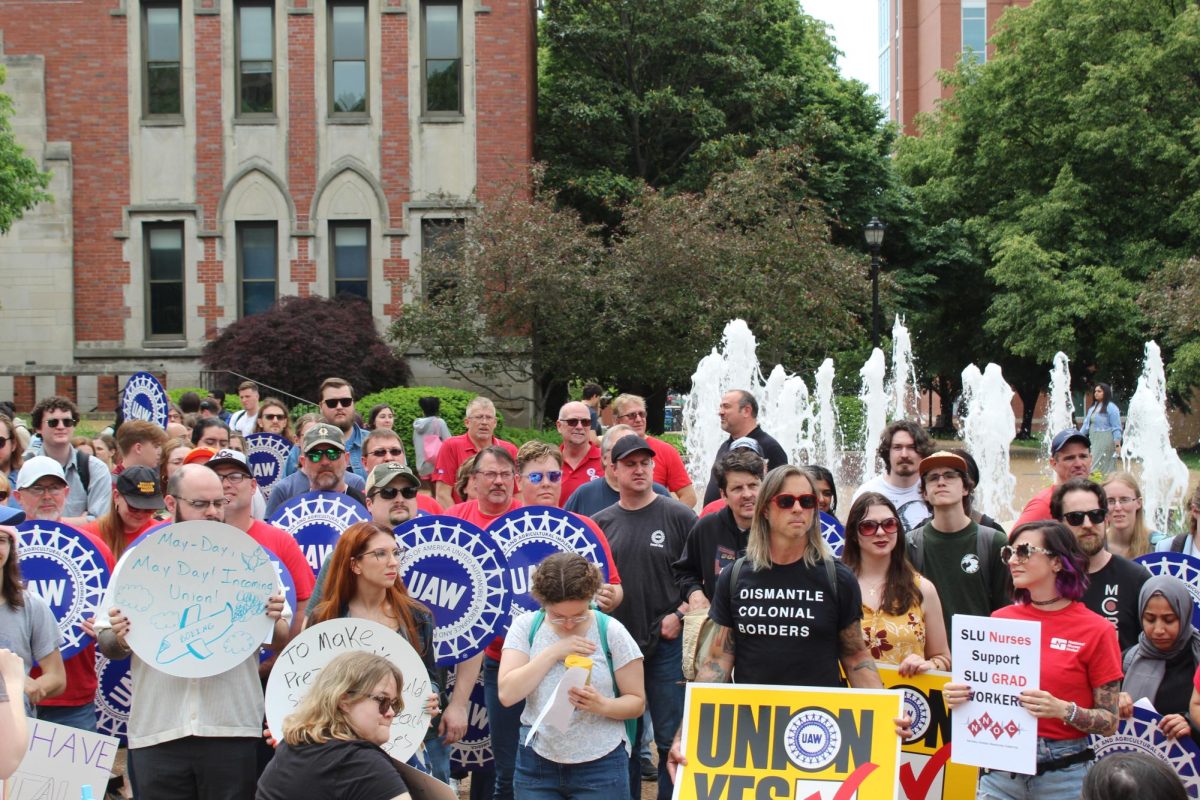Graduate student workers at Saint Louis University filed a petition for union elections with the National Labor Relations Board on Oct. 21, hoping to secure better wages, health care and job security.
The student workers want to join a national movement of academic workers represented by the United Automobile Workers (UAW), a union that advocates for science research funding, fair visa and immigration policies and better working conditions at academic institutions across the country.
Eileen Schaub, a teaching assistant for introductory biology and ecology labs, said she wants to join the student worker union so she can have a seat at the table during discussions about benefits and compensation.
When Schaub started her graduate studies at SLU in 2022, she said she quickly noticed that student workers were struggling to make ends meet.
“It did not take me very long to realize that most of the other grad students in my department who had been here for more than a year just seemed really tired and demoralized,” Schaub said. “They were giving me advice on things like what food banks to go to and where I could sell plasma because these were things they were having to do routinely.”
Graduate student workers were becoming fatigued under their employment conditions, Schaub said. SLU made changes to their health insurance which increased their copays. The graduate students also have not had a pay increase in about 12 years.
In February 2023, the graduate workers had an open forum with the provost to discuss their frustrations.
“It was a handful of us at first, we started looking for people in other departments in the university, and we started talking to people who knew about local labor organizers,” Schaub said. “Eventually we had enough organizers that we were ready to partner with a larger union, in our case, UAW.”
Schaub was a part of a graduate student worker union at the University of Connecticut where she received her masters.
“I can really feel the difference between being a grad worker at a unionized university and nonunionized university. At UConn we had really good health insurance, dental coverage, and if we felt we were getting overworked we could talk to a union representative,” Schaub said. “It just felt like the university was more aware of our existence.”
To form a union, first, 30% of coworkers need to sign union authorization cards or a petition. Then, an election petition must be filed with the National Labor Relations Board (NLRB). The NLRB will then hold a private election to determine if a majority of workers want a union. If the union wins in the election, the NLRB will become the employees’ union representative.
The employer is required to bargain with the union over the conditions of their employment. This is the step in the process where employees can negotiate and advocate for their needs.
In a statement, a SLU spokesperson said the university encourages eligible students to learn about how a union could benefit them and to participate in the union election that will be held on campus the second week of November.
“We respect their right to explore union representation and make informed decisions about their future. The University will honor the process that allows them to decide if they wish to be represented by the United Auto Workers,” the statement read.
At SLU, graduate workers include graduate assistants, teaching assistants and research assistants, many of which take on teaching and grading responsibilities.
Zackary Davis is a doctoral candidate in American Studies and a teaching assistant in the department. He said that graduate workers need to be treated better by the university.
“We were unanimously dissatisfied with the present situation up until this past year,” Davis said. “We haven’t received any raises in our compensation for the past 12 years, and we continue to feel that lack compensation.”
If SLU graduate students vote to unionize in November, they’ll join over 100,000 graduate student workers represented by the UAW.
“We all have one too many friends who are graduate workers at SLU who have had to make decisions between which non elective medical procedures they want to get because the health care coverage can’t cover both,” Davis said. “For me a union is the only path out of this Devil’s bargain that is graduate work at SLU.”












